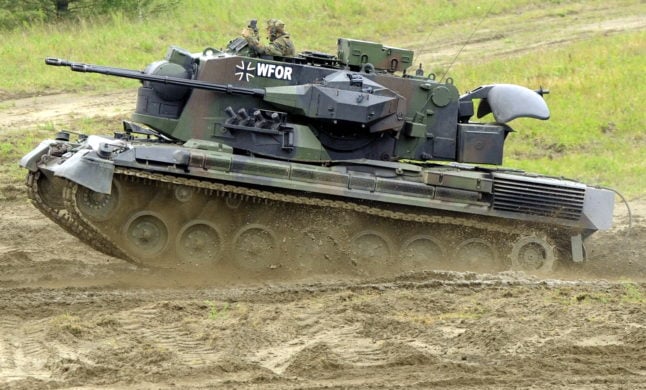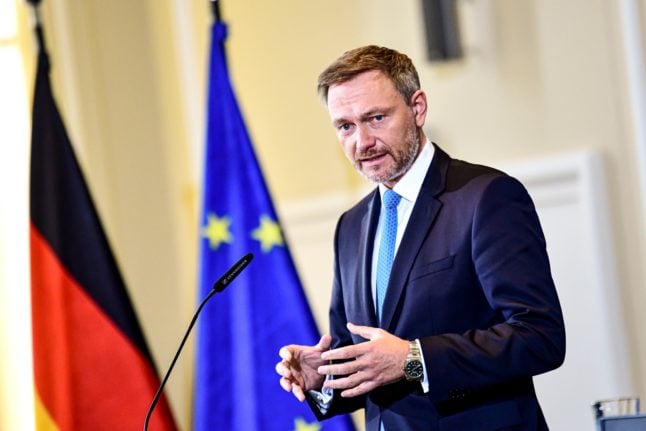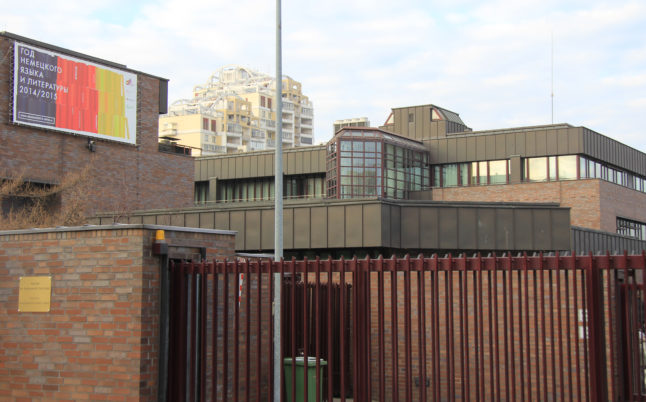- Merkel set for fourth term as chancellor as CDU leads parliamentary vote, exit polls say
- Turkey says it will send back ISIS prisoners even if citizenships revoked
- General Marchenko: ‘Mykolaiv was to be next city to fall, but Russia terribly failed’
- Ukrainian Armed Forces repel enemy attacks in four regions
- Somalia president hails lifting of arms embargo as government vows to wipe out al-Shabab militants
- Captured Somali pirates arrive in India to face trial over ship hijacking
- Martyred while serving nation: President Raisi dies in helicopter crash
- Stay Connected
Germany to deliver Gepard anti-aircraft tanks to Ukraine . Berlin gives green light to delivery of tanks with anti-aircraft guns in move welcomed by the United States.
The government has agreed to sign off the delivery of used Gepard anti-aircraft tanks, Lambrecht told an international meeting of defence ministers at the US Ramstein airbase, according to a draft of her speech seen by AFP.
Forty countries are holding emergency talks at the airbase in southwestern Germany on bolstering the defence capabilities of Ukraine.

A Gepard tank during military drills in Munster. Photo: picture alliance/dpa | Maurizio Gambarini

The supplementary budget, set to be put to the cabinet on Wednesday, will raise the total of new borrowing for the year to €138.9 billion.
The additional debt package was a “timely and targeted” response to the outbreak of war in Ukraine, the sources said, with the money intended to help businesses and households deal with rising energy costs as a result of the war, as well as financing humanitarian aid to Ukraine.
After years of chasing balanced budgets, traditionally frugal Germany took on huge amounts of debt in 2020 and 2021 to help Europe’s biggest economy cope with the coronavirus pandemic, lifting its constitutionally enshrined debt limits to do so.
The government had planned to take on €99.7 billion in 2022 as part of its “core” budget, but the war in Ukraine has forced Germany to adjust its calculations.
At the beginning of April, the government agreed a €5 billion support packet for business to help tackle rising energy costs.
Taxpaying households will also receive a €300 allowance to help match the increase in their bills, with people receiving housing benefit will also get a one-off lump sum.
Meanwhile, drivers will benefit from a cut in the energy tax on petrol and public transport users can take advantage of €9 per month ticket for three months over summer.
READ ALSO:
-
Will freelancers benefit from Germany’s €300 energy allowance?
-
Cheap transport and tax cuts: What Germany’s energy relief package means for you
Humanitarian aid for Ukraine was also included among the new spending items, while the government has set about building up gas reserves to reduce its dependency on supplies from Russia.
In total, €26.3 billion of the new debt consists of new spending, while the other €12.9 billion is to account for lower tax receipts as businesses suffer the impact of the war.
The government still aims to reinstate and stay within its debt rules in 2023, limiting the amount of new debt to €7.5 billion.
Russia expels 40 German diplomats amid escalating tensions
Moscow said Monday it was expelling 40 German diplomats in response to the “unfriendly decision” by Berlin to kick out Russian diplomats over the conflict in Ukraine.

Russia’s foreign ministry said in a statement it summoned Germany’s ambassador in Moscow and handed him a note “declaring persona non grata forty employees of German diplomatic institutions in Russia as part of a symmetrical response”.
“A strong protest was made to the head of the German diplomatic mission in Moscow in connection with the openly unfriendly decision of the German government,” to expel Russian diplomats, the ministry said.
Earlier in April, Germany said it was expelling a “significant number” of Russian diplomats, amid similar moves by other European states, over Ukraine.
Berlin responded to Monday’s announcement with defiance, describing it as “in no way justified”.
“The 40 Russian diplomats in Germany whom we expelled three weeks ago did not serve diplomacy for a single day during their stay in Germany,” Foreign Minister Annalena Baerbock said in a statement.
“Rather, these people worked systematically for years against our freedom and against cohesion in our society,” she said.
“Their work also threatened those who sought protection in our country. We could no longer tolerate that, nor will we tolerate such things in the future.”
The German diplomats in Russia, meanwhile, “have not done anything wrong”, Baerbock said.
“Despite the increasingly adverse circumstances there, they went to Russia with openness, curiosity and great commitment to serve our bilateral relations there.”
Baerbock had said earlier that Germany was expelling the Russians in response to the “unbelievable brutality” of Russian forces in its pro-Western neighbour Ukraine.
The Russian foreign ministry called Baerbock’s words “unacceptable”.
It added that Berlin’s decision was “motivated by an absolutely false assertion that the work of the abovementioned employees was aimed at undermining the ‘freedom of Germany’ and ‘unity of German society’, as well insinuations about what is happening in Ukraine”.
READ ALSO: Germany to provide over 1 billion euros’ military aid to Ukraine
All News
- Erdoğan unveils Turkey’s plan to build a spaceport in Somalia: report
- Israeli genocide in Gaza sees death toll cross grim 44,000 mark
- Lebanon’s housing sector crumbles, rental demand surges amid Israel-Hezbollah war
- Russia Fired Experimental Hypersonic Missile at Ukraine in Response to Western Long-Range Missiles – Putin
- ICC slaps Netanyahu, Gallant with arrest warrants for war crimes
- Donald Trump expected to consider recognizing Somaliland independence, former UK defense minister says
- US embassy in Kyiv shutters after ‘significant’ air attack threat By Tamsin Paternoster
- Opposition leader wins Somaliland presidential contest
- Israeli strikes rattle Beirut, as peace talks begin to take shape
- Zelenskyy says ‘missiles will speak for themselves’ as Biden OKs long-range use